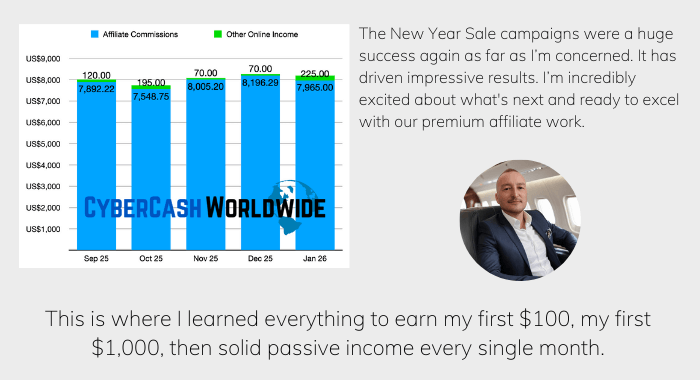Running a business introduces a unique mix of exhilaration and stress. While the independence of entrepreneurship excites many, the pressures often bring dark clouds that can weigh heavily on mental health. Depression sneaks in unnoticed, fueled by isolation, self-doubt, and relentless responsibilities. Breaking out of this cycle requires unconventional and bold strategies that challenge conventional thinking.

Depression Is Not Your Enemy
Destroying depression should not be your top priority. Fixating on eliminating it gives it too much control over your mindset. Depression is a symptom, not the root of the problem, and focusing solely on it might lead to avoidance instead of resolution. You should aim to build systems and habits that promote resilience instead of obsessing over trying to eradicate every dark thought.
Redirecting energy toward productive habits strengthens resolve. Spending all your focus on fighting depression leaves little room for growth. Putting effort into meaningful work or creative outlets builds a sense of accomplishment.
Shifting focus to external contributions fosters perspective. Volunteering time or helping others allows you to step outside your own mind. Realizing your ability to make an impact can weaken depression’s grip.
Acknowledging emotions instead of fighting them reduces their intensity. Denying sadness often amplifies it, while allowing yourself to feel it lets the emotion pass naturally. Accepting discomfort empowers you to navigate through it.
Building connections rather than retreating strengthens your defenses. Sharing moments with friends or peers reduces feelings of isolation. Human interaction reinforces your value within a broader context.
Building an Environment That Energizes You
Your surroundings shape how you think and feel each day. A workspace that feels suffocating will drain energy and make problems seem larger. Creating an area that uplifts you can help you see challenges as opportunities. Could changing your physical or emotional space shift your mindset?
Reorganizing your workspace boosts mental clarity. Clutter traps negative energy and makes simple tasks feel overwhelming. Rearranging furniture or decluttering surfaces can instantly refresh your focus.
Introducing bold colors inspires creativity. Neutral shades may feel safe, but vibrant hues spark energy and originality. A bright blue or a striking red wall can reignite motivation when spirits are low.
Adding plants revitalizes the air and the mood. Greenery introduces life to otherwise stale environments, reminding you that growth is possible. Caring for a plant reinforces responsibility without the pressure of deadlines.
Personalizing your desk reflects your individuality. Photos, mementos, or quirky trinkets remind you of what makes you unique. This self-expression anchors you in moments of doubt.
Defeating Isolation Before It Takes Over
Entrepreneurship often leaves people alone, trapped in their own thoughts. Isolation feeds negativity, convincing you that problems are insurmountable. Seeking connections—even in small, unconventional ways—recharges emotional reserves. How could reaching out to others reshape your day?
Scheduling calls with fellow entrepreneurs sparks new ideas. Hearing someone else's perspective turns stale thinking into fresh possibilities. A ten-minute conversation sometimes solves what days of solitary rumination could not.
Engaging with people outside your field inspires creativity. Talking to artists, engineers, or chefs shifts your mental framework. Diverse conversations expand horizons and make business challenges feel solvable.
Walking into unfamiliar social spaces builds confidence. Visiting co-working hubs or attending niche meetups forces you out of your shell. Making new acquaintances disrupts patterns of isolation.
Offering mentorship reconnects you with your expertise. Sharing wisdom reminds you of the knowledge you possess. This reinforces self-worth while helping someone else.

Turning Deadlines Into Motivation, Not Stress
Deadlines haunt business owners, often escalating anxiety and paralyzing productivity. Reframing these constraints as challenges sharpens your focus. What if deadlines became milestones to celebrate rather than hurdles to fear?
Breaking projects into manageable segments reduces overwhelm. Completing small tasks builds momentum while preserving energy. A task list with achievable items prevents procrastination.
Setting self-imposed "fake deadlines" trains discipline. Working ahead avoids last-minute panic and creates breathing room. Early completion fosters a sense of accomplishment.
Rewarding yourself after hitting deadlines strengthens motivation. Acknowledging progress builds positive associations with work. Rewards create a cycle of effort and satisfaction.
Collaborating with others makes deadlines feel less isolating. Teaming up shifts pressure from your shoulders to shared accountability. This support system ensures deadlines feel manageable.
Confronting Failure Without Self-Destruction
Failure feels inevitable in business, yet the weight it carries often spirals into self-doubt. Viewing setbacks as experiments rather than reflections of worth reframes failure. Could confronting mistakes boldly transform your perception?
Analyzing failures with curiosity exposes growth opportunities. Looking at what went wrong reveals insights that prevent future missteps. This mindset detaches emotions from outcomes.
Sharing stories of failure normalizes imperfection. Openly discussing mistakes reminds others—and yourself—that perfection is unrealistic. Vulnerability fosters connection.
Redefining success as persistence combats feelings of inadequacy. Viewing setbacks as part of a larger process reduces their sting. You are not defined by a single outcome.
Focusing on what is still working keeps failure in perspective. A mistake in one area does not erase success in another. Identifying what remains strong reinforces confidence.
Injecting Humor Into Everyday Stress
Stress thrives in seriousness, tightening its grip when problems feel monumental. Laughter disrupts this cycle, reminding you that everything is temporary. How could humor change how you see obstacles?
Watching absurd or outlandish videos shifts your mood. Even a five-minute break with ridiculous content reduces tension. Laughing recalibrates stress to manageable levels.
Creating absurd "worst-case scenarios" deflates fear. Imagining hilariously unrealistic outcomes makes genuine worries seem small. Humor reframes dread into perspective.
Sharing jokes or memes with colleagues lightens the atmosphere. Humor builds camaraderie and shifts focus from problems to shared humanity. Connection through laughter dissolves isolation.
Making fun of your own struggles reduces their control. Laughing at mistakes takes their power away. This approach turns setbacks into stories, not burdens.
Prioritizing Physical Health for Mental Clarity
The connection between physical and mental health is undeniable. Neglecting your body undermines your ability to think clearly and face challenges. Could small, intentional changes in routine bolster your resilience?
Eating nutrient-rich foods fuels focus. A balanced meal provides the energy needed for sharp decision-making. Skipping meals leaves you foggy and irritable.
Scheduling short walks clears mental clutter. Movement distracts the brain from negative spirals, refreshing perspective. A brisk walk often resolves mental blocks.
Drinking water regularly avoids fatigue. Dehydration clouds thinking and heightens irritability. Staying hydrated boosts stamina throughout the day.
Sleeping adequately restores emotional reserves. Exhaustion worsens depression, while consistent rest renews problem-solving capacity. Prioritizing sleep transforms your resilience.
Challenging Perfectionism at Its Core
Perfectionism cripples decision-making and amplifies self-criticism. Breaking free from this mindset opens pathways to progress. How would you act if "good enough" replaced "flawless"?
Focusing on completion builds confidence over time. Delivering work—even imperfectly—establishes momentum. Small wins reinforce competence.
Setting realistic expectations reduces frustration. Trying to achieve the unattainable leads only to burnout. Adjusting goals to align with reality prevents disappointment.
Acknowledging effort shifts focus from outcomes. Recognizing hard work affirms your abilities. Effort consistently applied outweighs occasional failures.
Letting others see imperfection fosters relatability. Sharing imperfect results demonstrates courage and humanity. This transparency encourages collaboration.
Destroying depression in business requires audacity and creativity. Conventional strategies fail when depression’s grip feels too tight. By exploring these provocative ideas, you position yourself to reclaim control over both your mental health and your entrepreneurial vision.

